The Woman Thou Gavest Me may refer to:
- The Woman Thou Gavest Me (novel), a 1913 novel by Hall Caine
- The Woman Thou Gavest Me (film), a 1919 silent film based on the novel
The Woman Thou Gavest Me may refer to:

Sir Thomas Henry Hall Caine, usually known as Hall Caine, was a British novelist, dramatist, short story writer, poet and critic of the late 19h and early 20th century. Caine's popularity during his lifetime was unprecedented. He wrote 15 novels on subjects of adultery, divorce, domestic violence, illegitimacy, infanticide, religious bigotry and women's rights, became an international literary celebrity, and sold a total of ten million books. Caine was the most highly paid novelist of his day. The Eternal City is the first novel to have sold over a million copies worldwide. In addition to his books, Caine is the author of more than a dozen plays and was one of the most commercially successful dramatists of his time; many were West End and Broadway productions. Caine adapted seven of his novels for the stage. He collaborated with leading actors and managers, including Wilson Barrett, Viola Allen, Herbert Beerbohm Tree, Louis Napoleon Parker, Mrs Patrick Campbell, George Alexander, and Arthur Collins. Most of Caine's novels were adapted into silent black and white films. A. E. Coleby's 1923 18,454 feet, nineteen-reel film The Prodigal Son became the longest commercially made British film. Alfred Hitchcock's 1929 film The Manxman, is Hitchcock's last silent film.

John Malcolm Stahl was an American film director and producer. He is best known for his films such as Leave Her to Heaven (1945), Imitation of Life (1934), The Keys of the Kingdom (1945), and Back Street (1932).

A troparion in Byzantine music and in the religious music of Eastern Orthodox Christianity is a short hymn of one stanza, or organised in more complex forms as series of stanzas.

Henry Arthur Barrows was an American actor who appeared in films from 1913 to 1936.

Harriet Theresa Comstock was an American novelist and author of children's books.

Fritzi Brunette was an American actress.
The Prayer of Solomon is a prayer by King Solomon described in 1 Kings 8:22-53 and 2 Chronicles 6:12-42. This prayer is said to have occurred at the dedication of the temple of Solomon, which also became known as the First Temple. The wording and thinking of the prayer have much in common with the language of Deuteronomy.

Winter Amos Hall was a New Zealand actor of the silent era who later appeared in sound films. He performed in more than 120 films between 1916 and 1938. Prior to that, he had a career as a stage actor in Australia and the United States. In sound films, he was frequently typecast as a clergyman.
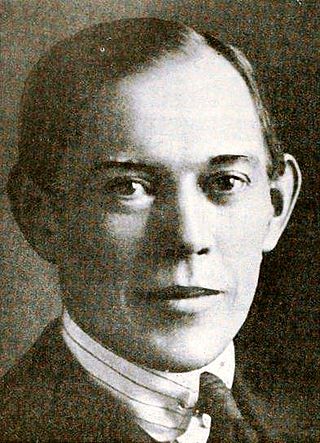
Hugh Ford was an American film director and screenwriter. He directed or co-directed 31 films between 1913 and 1921. He also wrote for 19 films between 1913 and 1920.

Thomas Dexter Jakes is an American non-denominational Christian pastor and motivational speaker. He is the senior pastor of The Potter's House, a non-denominational American megachurch in Dallas, Texas. Jakes's church services and Evangelistic sermons are broadcast on The Potter's Touch. He is the author of many books and also produces films.

Adele Farrington was an American actress of the stage and the silent film era.
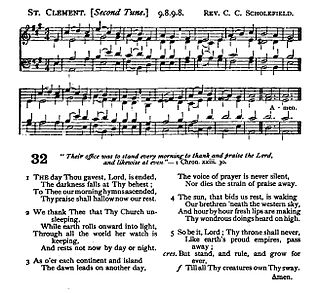
The day thou gavest, Lord, is ended is a Christian hymn written by the Anglican hymnodist the Rev John Ellerton (1826–1893) in 1870 for its inclusion in A Liturgy for Missionary Meetings. It is often sung to the tune of St Clement and its theme focusses on the worldwide fellowship of the church and its continual offering of prayer and praise to God.
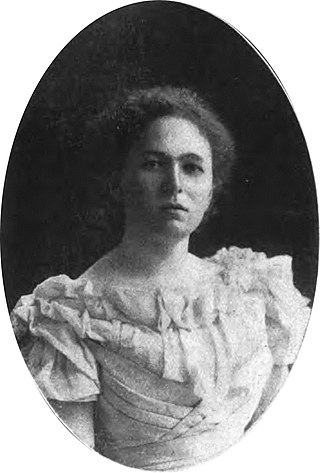
Beulah Marie Dix was an American screenwriter of the silent and sound film eras, as well as a playwright and author of novels and children's books. She wrote for more than 55 films between 1917 and 1942. Dix married G. H. Flebbe at St. John's Chapel in Boston, Massachusetts on May 6, 1910.

The Woman Thou Gavest Me is a 1919 silent film directed by Hugh Ford and starring Jack Holt, Katherine MacDonald and Milton Sills. It was produced by Famous Players–Lasky and distributed through Famous Players–Lasky and Paramount Pictures. The film is based on the 1913 controversial novel The Woman Thou Gavest Me by Hall Caine, adapted for the screen by Beulah Marie Dix. A song of the same name with words and music by Al Piantadosi promoted the film.

The Child Thou Gavest Me is a 1921 American drama film directed by John M. Stahl and written by Chester L. Roberts. The film stars Barbara Castleton, Adele Farrington, Winter Hall, Lewis Stone, William Desmond, and Richard Headrick. The film was released on August 20, 1921, by Associated First National Pictures.
Madge Tyrone was an American actress, film editor, and screenwriter active during Hollywood's silent era.
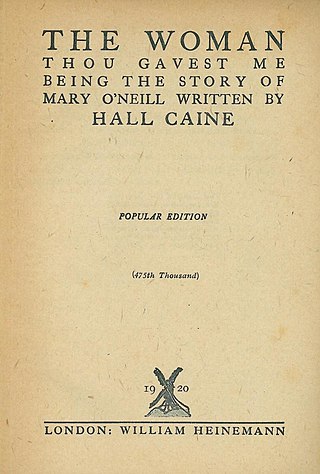
The Woman Thou Gavest Me is a best-selling 1913 British novel by Hall Caine. The book is a fictional first-person account of a Catholic woman's struggle after marrying the wrong man. It was one of Caine's most contentious books, causing outrage on its release for its handling of adultery, illegitimacy and divorce. It was the seventh-best-selling novel of 1913 and was made into a film in 1919.

Laura Troubridge, Lady Troubridge, was a British novelist and etiquette writer. She wrote almost 60 novels and many short stories.
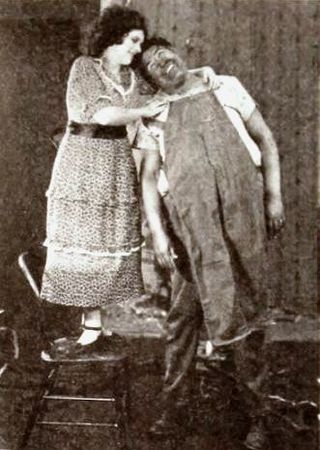
Helen Howard was an American actress who appeared in a string of B-movie westerns in the late 1910s and the 1920s.
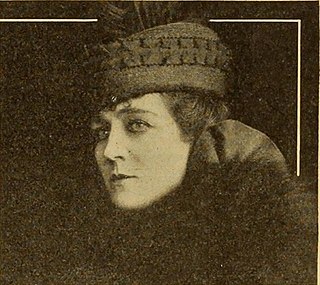
Katherine Kiernan Griffith, also seen as Catherine Kiernan, was an American character actress on stage and in silent films.